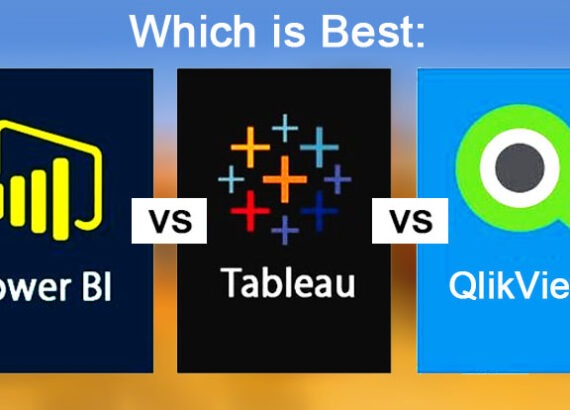From Zero to Hero: How to Excel in the World of Software Development!
Embarking on a journey in the world of software development is an exciting and rewarding endeavour. As technology continues to advance at an unprecedented pace, the demand for skilled software developers is skyrocketing. Whether you are starting from scratch or looking to enhance your existing skills, this article will guide you on the path from zero to hero in the realm of software development.
From building a strong foundation of essential knowledge, mastering programming languages, and navigating the software development lifecycle, to continuous learning and professional growth, we will explore the key elements necessary for excelling in this dynamic field. So, fasten your seatbelt and get ready to unleash your full potential as we dive into the realm of software development!
1. Introduction: The Path to Software Development Success
Exploring the World of Software Development
Software development, also known as coding wizardry, is the art of creating magic on a computer screen. It’s the realm where ideas become reality, and problems are solved with the stroke of a keyboard. If you’re curious about how software is created or have an insatiable desire to build the next big app, you’ve come to the right place!
Understanding the Importance of Excelling in the Field
In the fast-paced world of technology, excelling in software development can be the key to unlocking a world of endless possibilities. Whether you aspire to work for a cutting-edge startup or a renowned tech giant, mastering the art of coding will give you the superpower to turn imagination into innovation. So buckle up, because we’re about to embark on an exhilarating journey from zero to hero in the world of software development!
2. Acquiring Knowledge of Data Structures and Algorithms
Mastering the Fundamentals of Programming
Before you can conquer the software development universe, you need a solid foundation in programming. This means understanding concepts like variables, loops, conditionals, and functions. Don’t worry if it sounds like gibberish right now – with a little patience and practice, you’ll soon be speaking the language of computers like a pro!
Don’t be intimidated by their fancy names! Think of data structures as the organizational tools that help you manage and store information, while algorithms are step-by-step recipes for solving problems. Learning these concepts will be like unlocking a treasure chest of efficiency and optimization.
Understanding Object-Oriented Programming
Imagine software as a big party, and objects as the life of the party! Object-oriented programming (OOP) is a programming paradigm that allows you to encapsulate data and behaviour into reusable objects. It’s like having a bag of Lego blocks to assemble, disassemble, and play with to create amazing things. Understanding OOP will take your coding skills to the next level and make your code more modular and flexible.
3. Mastering Programming Languages: Choosing the Right Tools
Evaluating the Top Programming Languages in the Industry
Choosing a programming language can be like entering a candy store with countless delicious options. From the versatile Python to the battle-tested Java, each language comes with its flavour and strengths. It’s crucial to evaluate the needs of your projects and the demands of the industry before selecting your weapon of choice.
Specializing in One or Multiple Languages
Becoming a programming polyglot, or someone who knows multiple languages can give you a competitive edge. While having a strong foundation in one language is good, expanding your skillset to encompass different languages can broaden your horizons and open up more opportunities. Learning new languages is like learning new ways to solve problems, and who doesn’t love a good brain teaser?
Exploring Frameworks and Libraries
Frameworks and libraries are like shortcuts to building software. They provide pre-written code and tools to help speed up development. Whether it’s the popular React for web development or Django for creating robust web applications, exploring frameworks and libraries can save you time and effort, making you a more efficient developer. So don’t be afraid to dive into these developer treasures!
4. Navigating the Software Development Lifecycle: From Idea to Deployment
Understanding the Different Phases of the Software Development Lifecycle
Building software is not just about typing code. It involves a series of well-defined phases, including requirements gathering, design, development, testing, and deployment. Each phase plays a vital role in ensuring that your software is a success. So buckle up and get ready to navigate this exhilarating roller coaster ride!
Embracing Agile Methodologies
Gone are the days of rigid, waterfall-style software development. Agile methodologies, such as Scrum and Kanban, have taken the industry by storm. They promote flexibility, collaboration, and iterative development, allowing you to adapt to changing requirements and deliver high-quality software at a faster pace. Embracing these methodologies will make you feel like a software development ninja!
Utilizing Version Control Systems
Version control systems, like Git, are a software developer’s best friend. They help you keep track of changes in your code, collaborate with others seamlessly, and revert to previous versions if things go haywire. Understanding and utilizing version control systems will save you from many sleepless nights and ensure that your code is always in a happy and stable state.
Now, armed with these essential skills and knowledge, you’re well on your way to becoming a software development hero! So go forth, write amazing code, and let your creativity be the driving force behind the software of tomorrow. The world is waiting for your genius!

5. Unlocking Your Potential: Continuous Learning and Professional Growth
Embracing Lifelong Learning in the Fast-Paced Tech Industry
In the world of software development, one thing is certain: change is constant. To excel in this field, you must embrace the concept of lifelong learning. Invest time in reading tech blogs, following influential developers on social media, and subscribing to newsletters. The more you learn, the more valuable you become in the ever-evolving tech industry.
Exploring Online Resources and Communities
Online resources are a treasure trove for aspiring software developers. Take advantage of platforms like Stack Overflow, GitHub, and Coursera. Engage with online communities and forums dedicated to programming. Participating in discussions and asking questions can enhance your knowledge and improve problem-solving skills. Remember, the internet is your virtual classroom.
Attending Conferences and Workshops
Conferences and workshops offer unique learning and networking opportunities. From industry experts sharing their insights to hands-on coding sessions, these events can ignite your passion for software development. Attend local meetups and conferences, and don’t forget to network with other professionals. The connections you make could open doors to exciting career opportunities.
6. Collaborating and Communicating: Working Effectively in Teams
Developing Strong Interpersonal and Communication Skills
Software development is rarely a solitary endeavour. It often involves collaborating with teams of designers, engineers, and project managers. Developing strong interpersonal and communication skills is crucial. Practice active listening, express your ideas clearly, and always be open to feedback. Effective teamwork yields better results and can also make the development process more enjoyable.
Implementing Agile Collaboration and Project Management Techniques
Agile methodologies have revolutionized software development. Embrace iterative development, frequent communication, and adaptability. Agile practices help teams stay organized, meet deadlines, and deliver high-quality software.
Resolving Conflicts and Handling Team Dynamics
Learning to handle them gracefully is essential. Cultivate empathy, promote a positive work environment, and address conflicts proactively. Remember, a harmonious team is a productive team. Be a problem solver and foster a culture of collaboration.
7. Overcoming Challenges: Troubleshooting and Problem-Solving Strategies
Developing a Systematic Approach to Troubleshooting
Software development often involves troubleshooting complex issues. Develop a systematic approach to tackle problems. Break them down into smaller, manageable parts, and use tools like logging and debugging to identify the root cause. Keep calm, approach problems logically, and never underestimate the power of Google.
Utilizing Debugging Tools and Techniques
Debugging is an invaluable skill for software developers. Familiarize yourself with debugging tools and techniques specific to your chosen programming language or framework. Master the art of stepping through code, setting breakpoints, and inspecting variables.
Applying Critical Thinking and Problem-Solving Strategies
Being a software developer means being a problem solver. Cultivate critical thinking skills and approach challenges with a logical mindset. Break down problems into manageable steps, seek alternative perspectives, and explore different solutions. Embrace creativity and think outside the box. The ability to solve complex problems is what sets exceptional developers apart.
8. Standing Out in the Field: Strategies for Career Advancement
Building a Strong Professional Network
Networking can lead to job opportunities, partnerships, and mentorships.
Creating a Stellar Portfolio and Resume
Your portfolio and resume are your chance to shine. Showcase your best work and highlight your accomplishments. Keep your portfolio up to date with relevant projects and include a variety of programming languages and technologies. Tailor your resume to emphasize your skills and experiences that align with the job you’re applying for.
Preparing for Technical Interviews and Advancement Opportunities
Brush up on fundamental concepts, practice coding problems, and review common interview questions. Additionally, stay informed about advancements in the field and explore opportunities for specialization. Continually improve your skills to stay competitive in the ever-evolving software development landscape.
Remember, becoming a software development hero isn’t about overnight success. It’s a journey of continuous learning, collaboration, problem-solving, and personal growth. Embrace these strategies, have fun along the way, and in no time, you’ll be soaring to new heights in the world of software development!
Conclusion
In conclusion, the world of software development offers endless opportunities for growth and success. By honing your skills, staying current with industry trends, and embracing a mindset of continuous learning, you can excel in this rapidly evolving field. Remember to collaborate effectively, overcome challenges with determination, and always strive for innovation. With dedication and perseverance, you can transform yourself from zero to a hero in the world of software development. So go forth, unleash your creativity, and make your mark in this exciting and ever-expanding domain!
FAQ
1. How long does it take to excel in software development?
There is no set timeline for becoming a proficient software developer. The time it takes to excel in software development varies depending on factors such as prior experience, dedication, and the complexity of the technologies you’re working with. It’s important to focus on continuous learning and practice to improve your skills consistently.
2. Do I need a formal degree to succeed in software development?
While a formal degree in computer science or a related field can provide a solid foundation, it is not the only path to success in software development. Many professionals in the industry have achieved great success through self-study, coding boot camps, and online resources. What matters most is your ability to demonstrate your skills and knowledge through practical projects and experience.
3. How can I stay up-to-date with the latest trends in software development?
Staying current with the rapidly evolving software development landscape is crucial. Engage in continuous learning by following industry blogs, participating in online communities, and attending conferences and workshops. Additionally, joining professional networks and connecting with other developers can provide valuable insights and help you stay updated with the latest trends and technologies.
4. What are some key qualities of a successful software developer?
Successful software developers possess a combination of technical skills, problem-solving abilities, and strong interpersonal skills. They are detail-oriented, analytical thinkers who can effectively collaborate with team members and communicate complex concepts. Adaptability, a passion for learning, and the ability to work well under pressure are also important qualities for excelling in the field of software development.
Thank you for reading 🙂
If you want to build your website at an affordable price contact: www.nextr.in
Read this: How To Become A Web Developer?


















